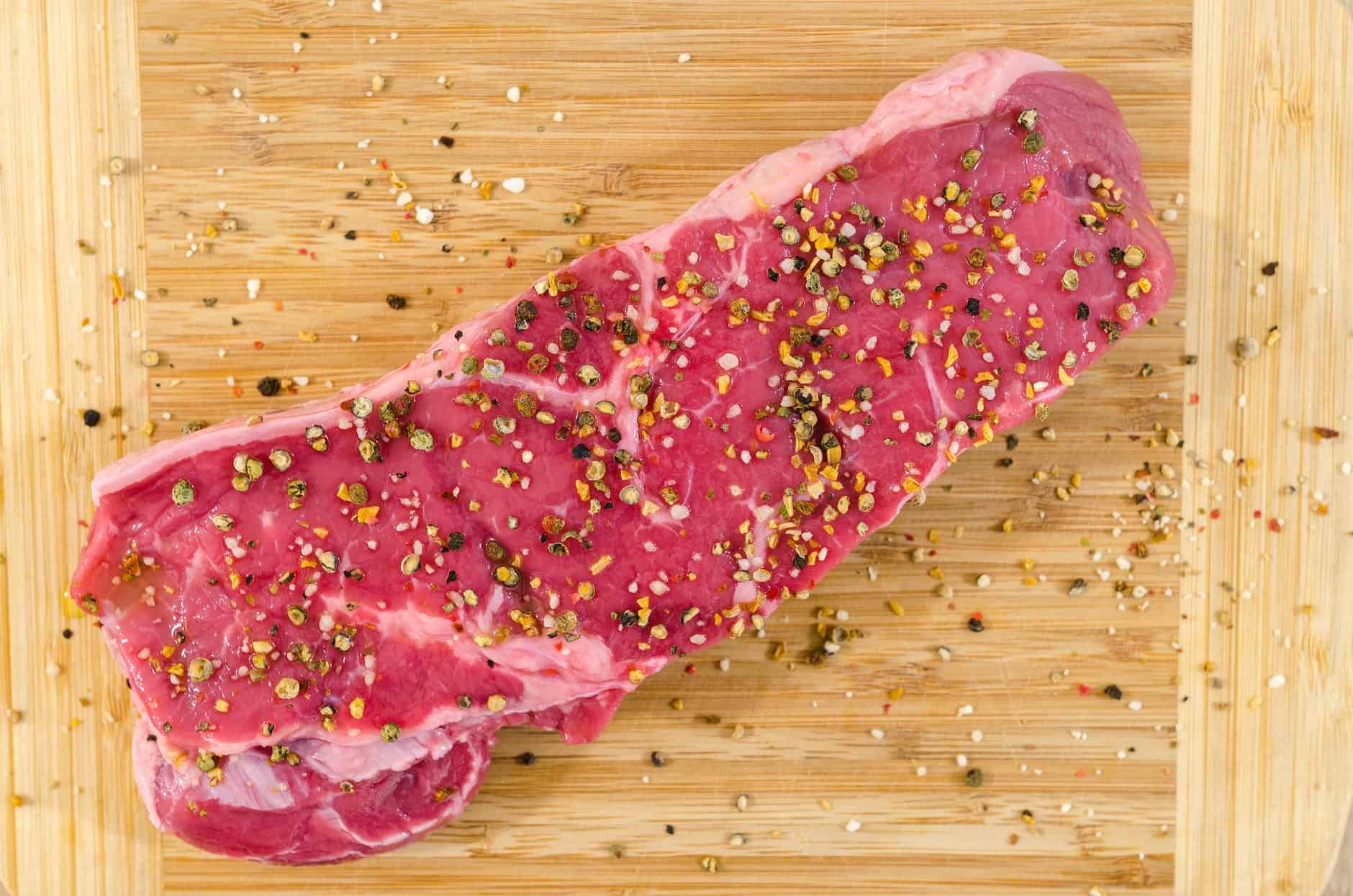How to Improve Your Sports Performance with Sports Psychology and Nutrition
Wondering how to become a better athlete? Do you want to improve your sports performance?
To take your performance to the next level by understanding your sports psychology and nutrition.
You will learn about sports psychology and how to use it say focused will also explore eating the right foods and how that optimises your energy levels as an athlete.
Let’s get started!
1) The importance of sleep
Sleep is super important if you’re wanting to perform in your hockey games and training. Not getting enough has serious negative impacts on your athletic performance as well as your overall health!
So sleeping 7 to 8 hours per night affects your energy levels, focus, mental clarity and stress levels, and attitude. It has been shown in studies that people perform far better than those who don’t.
It also is crucial as it balances your body’s hormones and repairs the body. If you’re looking to bulk up, your body produces a growth hormone that builds muscle tissue during sleep. Sleeping helps your immune system by helping to reduce inflammation.
So don’t lack sleep! When you go to bed at night you don’t want to sleep but in the morning you love it!
Little sleep causes your performance and concentration to be impaired, reducing your reaction time – not what you want if you’re looking to improve your sports performance!
However, like they always say quality is as important as quantity… so get into a routine to feel refreshed the next day ready for your sporting endeavour.
A couple of tips to help fall asleep…
Make sure you’re free from noise, and light, and be in a safe environment, avoiding caffeine in the evening is essential too… I wear a sleeping mask and it really helps!
These tips will help you! As an athlete, they can improve your sports performance slightly over time – giving you a competitive edge (it all adds up!).
To increase your sports performance and athletic performance more, check out the following points!
Sports psychology techniques like visualisation, goal-setting, and relaxation techniques.
They help you stay focused on your athletic goals and put you in the proper mindset when it comes time to compete!
Make it a daily routine… to build your athletic life, you must try new things. Significant improvements in your sports performance will show over time – not too long though, it happens surprisingly quickly.
Check out this amazing podcast… you will be shocked at what you don’t know about sleep.
2) The role of visualisation for sports performance
Visualisation is massive and can be done anywhere! All you need is a quiet place and a bit of imagination… so relax and close your eyes.
Visualise yourself performing your sporting activity. Imagine yourself executing the movements with precision and skill. Think of the technical skills required to do it.
Visualisation is so important for athletes to know to help their sports performance. Since your think of the activity, your brain is tricked into thinking you’re actually doing it. So it’s firing the connections in the brain… it’s like training without physical training.
It’s a powerful way to improve athletic performance if done regularly (1x per week). Visualisation can also help you gain confidence and reduce your anxiety before competitions.
The results are well documented… studies have shown that it boosts physical performance, motivation, concentration, and energy levels.

So no matter what sport you play, visualisation can help you reach your peak performance levels.
How about using visualisation to improve sports nutrition? People find visualising themselves eating healthy foods helps them when it comes to food choices. Try that next time you’re in the chocolate aisle at the shops!
In the hockey context, visualising yourself successfully passing the ball, making a save, or doing proper footwork helps develop the confidence you need to do it in a game.
From mastering new skills through visualisation to maintaining adequate nutrition habits, sports psychology can give any athlete the upper hand.
3) The power of positive thinking in sports performance
Practising positive thinking has been around for a long time.
It’s pretty much the belief of having a positive attitude – being optimistic.
Different types of positive thinking include goal setting, reframing negative thoughts, and practising self-affirmation. This can help improve sports performance and overall well-being over time.
I like to jot down three things, on my phone at the end of the day that I’m grateful for. I find this is the best way to practice optimism, as I realise many people are less fortunate than me.
Today, for example, I’m grateful for:
- Had a large and nutritious lunch
- Went surfing with my Dad
- Had a fun hockey training

Even in the face of adversity, having a positive outlook will help you through it. Positive thinking has also been shown to reduce stress. The key to making positive thinking effective is to practice it every day.
Studies have shown that athletes who have a positive outlook perform better than those with negative thinking patterns. So combining positive thinking with physical training and nutrition, field hockey players can reach their full potential and become better athletes.
Proper nutrition is just as important as sports psychology… so you should prioritise rest as much as you prioritise eating properly.
4) The benefits of breathing exercises
Breathing exercises are aspects of sports psychology and sports performance.
They are used for relaxation and meditation which allows you to create a peaceful state of mind to perform at your best.
They can range from box breathing to mindfulness.
Box breathing in inhaling for four seconds, holding your breath for four seconds, exhaling for four seconds, and then pausing for four seconds before repeating the cycle.
Box breathing helps you by:
- Reducing stress – when feeling overwhelmed
- Sleeping – when you can’t sleep
- Helping refocus – when you are having a busy day.
- Controlling your hyperventilation – when panicked

Scientifically proven deep breathing activates the parasympathetic nervous system, lowering heart rate and cortisol levels… allowing for improved oxygen levels in the body. This is essential for any athlete’s physical performance!
They can be practised anywhere, are simple, free, and only require a few minutes of your time. Doing it once a day, maybe before a match/training, helps you with sports performance and improves your concentration levels.
Using positive thinking combined with breath work can create lasting improvements in any field hockey player’s sports performance.
By mastering this technique and incorporating it into your daily warmup routine, you will be able to achieve a higher physical performance in field hockey.
In addition to breath work, sports psychology such as goal setting, visualisation, and self-talk will complement sports nutrition – significantly improving your sports performance.
5) The impact of nutrition on sports performance
You need to fuel your body with the right nutrients to optimise your physical and mental capabilities. Proper nutrition is crucial for optimal energy levels, muscle recovery, and overall sports performance.
Basic nutrition breakdown:
- Carbohydrates = primary source of energy during exercise.
- Proteins = repair and build muscle tissue.
- Fats = maintain cell function and promote hormonal balance.
- Vitamins and minerals = support the immune system
However, a balanced diet that includes a variety of nutrient-rich foods is recommended for most athletes by nutritionists.
It is essential when it comes to proper sports nutrition to consume nutritious foods. Some examples of these…
- Fruits Bananas are very high in protein
- Vegetables Red cabbage and lettuce. Colourful veggies not just green!
- whole grains Brown rice and quinoa.
- lean proteins Chicken
- and healthy fats Avocado and Salmon
Eating the right foods (consistently!) provides you with the necessary nutrients your ‘workhorse’ body needs for high-output athletic performance.
You should aim to eat 2-3 hours before a match of training so your body has time to digest it to make use of the nutrients. This meal helps to top up glycogen stores, which are the primary source of energy during high-intensity exercise
If you consume a bit of protein if that meal, it will help prevent muscle breakdown and enhance your recovery.
Sports nutrition has changed quickly over the past 10 years, with more knowledge than ever before. Not only helping performance but to reduce the risk of injury/illness.
The type of athletes who consume well-balanced nutritious meals that are rich in good stuff like vitamins, and minerals, can improve their overall sports performance significantly.
Protein is KING when it comes to sports performance, expected to have 20-35% of your daily calories be protein.

Calculating your protein requirements:
- Find your weight in kg.
- Then choose a protein number from
- Mildly Active = 0.8
- Regularly Active = 1.5
- Heavily Active = 1.8.
- Weight in kg x [your chosen protein number] gm/kg = protein gm
For example,
- An 80kg hockey player who is training 3x a week and gyming 2x a week.
- 80 x 1.8 = 144g of daily protein intake.
The food you put in your mouth plays a vital role in sports performance. So be kind to your body and make your life easier by providing it with the necessary energy to perform at its best.

Leave a Reply
You must be logged in to post a comment.